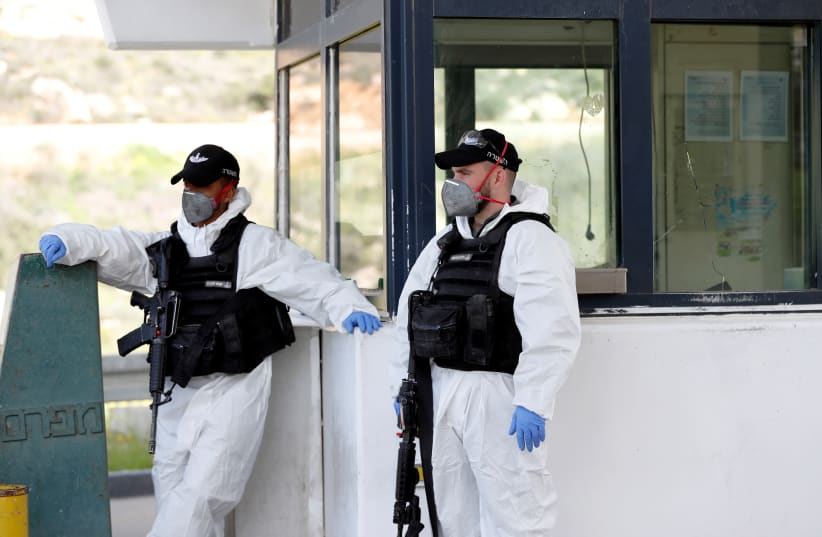Israel is expected to impose further restrictions and regulations on the public, limiting movement and employment as the coronavirus crisis worsens. Prime Minister Benjamin Netanyahu was meeting with top government officials throughout the day Saturday to finalize the new guidelines.
Health Ministry officials reportedly said that no more than two people should be in a room together to prevent the spread of the virus, according to N12. Additionally, Health Ministry officials reportedly recommended a partial lockdown for at least five weeks, while others warned that a lockdown could lead to economic collapse.
Officials from various ministries reportedly said that to implement this kind of lockdown would take at least two days, N12 reported on Saturday morning. There is also reportedly discussion of how to produce food and keep banks and the stock exchange open with the new restrictions.
According to N12, Prime Minister Benjamin Netanyahu's government is expected to restrict public transportation and employment. Israel is also expected to declare a state-wide shutdown of all educational facilities, including preschools.
The National Security Council held discussions on Friday, examining further restrictions. According to N12, the next expected steps of the government are a massive raise of COVID-19 tests, as well as transforming hotels into facilities that will hold patients in satisfactory condition.
Some of the further steps reportedly explored by the council include mass layoffs and remote employment, as well as the release of "mild criminals" and limitations on the number of visitors at malls and commercial centers.
Israel is also expected to impose movement restrictions on Palestinian workers from the West Bank while continuing to recruit workers for vital services and industries. Prof. Eyal Leshem, an infectious disease specialist from the Sheba Medical Center at Tel Hashomer, told N12 that harsher regulations may help fight the disease.
"Curfews are something that need to be used," Leshem told N12, explaining that a two-week state-wide "Italian-style" closure may help Israel prevent an outbreak. Earlier on Friday, Defense Minister Naftali Bennett announced that three facilities will be set up in Israel's North, Center and South to hold those in quarantine.
According to N12, since coronavirus first broke out in the country, more than 200,000 Israelis have entered quarantine. Since the official number of those infected does not come close to that in Italy, Health Ministry director Moshe Bar Siman Tov said recently that the actual number of Israelis infected with COVID-19, the disease caused by the novel coronavirus, is likely to be higher than the number of patients.
As of Friday night, Israel has three COVID-19 patients in critical condition. Thousands of medical personnel have entered quarantine in the past several days. According to the World Health Organization, as China reports a decrease in new cases, the epicenter of the outbreak has moved to Europe, which – with Israel included in the organization's statistics – has more cases than the rest of the world combined, excluding China.
According to N12, following discussions that will be held on Saturday evening, the government is expected to announce new steps designed to shut down most of the market within several days. The Health Ministry has reportedly examined the possibility of transforming the entire Sharon Hospital in Petah Tikva into a specialized medical center for COVID-19 patients.
